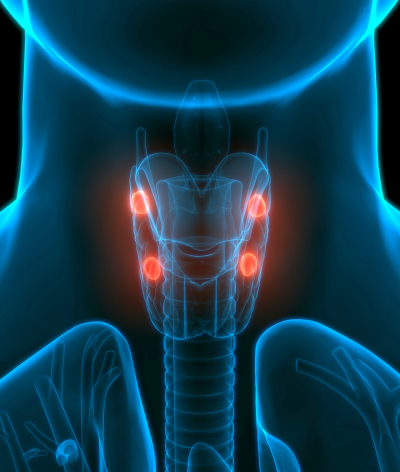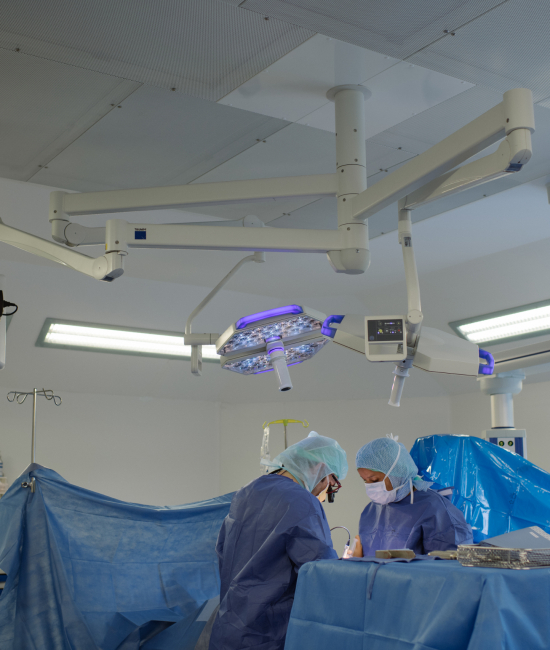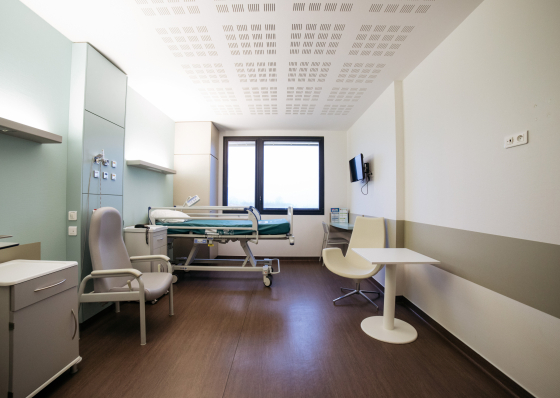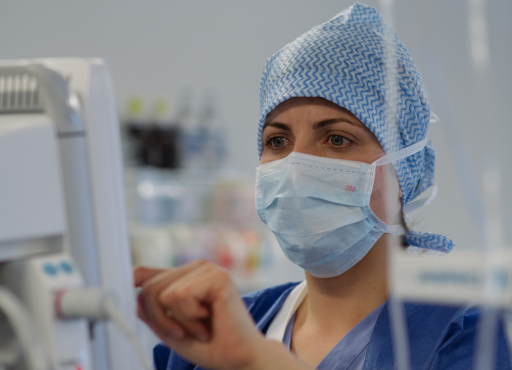Understanding the Parathyroids
Behind the thyroid are the parathyroid glands—tiny structures the size of a grain of rice, usually numbering four. Their role is to maintain the calcium balance in the blood through the secretion of parathyroid hormone (PTH). This mechanism is essential for the proper functioning of muscles, nerves, and bones.

Conditions
Parathyroid Conditions
Hyperparathyroidism: A common condition after age 50, characterized by excessive PTH secretion and elevated calcium levels in the blood. It can cause chronic fatigue, bone pain, digestive or urinary disturbances, or difficulty concentrating. Treatment is most often surgical.

You are going to have parathyroid surgery
Your parathyroid surgery journey at Thyropole Center
Before the Procedure
The surgical decision is typically made in collaboration with an endocrinologist following confirmation of hyperparathyroidism, usually associated with high blood calcium. Additional tests—such as blood work, neck ultrasound, scintigraphy, or MRI—are conducted to locate the overactive parathyroid gland. A surgical consultation with a Thyropole surgeon follows, during which the procedure is explained and a post-operative appointment is scheduled. A pre-anesthesia consultation at Clinique Belharra prepares you for the procedure.
Hospitalization at Clinique Belharra
Operating Room
Admission occurs on the day of surgery, either as an outpatient or short-stay, depending on your situation. Surgery is performed under general anesthesia and typically lasts between 30 minutes and 1 hour, depending on the gland’s location and complexity. A PTH test is done before entering the operating room. The surgeon removes the hyperfunctioning parathyroid gland, using intraoperative pathology analysis if necessary.
Recovery Room
Close monitoring begins immediately post-op, particularly to detect any temporary drop in calcium levels, which can cause tingling or cramps. A PTH dosage confirms the effectiveness of the procedure.
Return to Room
You return to your room a few hours after surgery. Medical staff monitor your pain, vital signs, and blood calcium levels over the next few hours and days. Discharge is usually possible the same day or the next. Temporary calcium and/or vitamin D supplementation may be prescribed based on your lab results.

After surgery follow-up
Post-Operative Consultation (Day 10–15)
This takes place approximately 10 to 15 days after surgery and includes two parts:
Medical Consultation
Follows an initial speech therapy evaluation. A Thyropole physician conducts a comprehensive review: current calcium levels (with test results brought along), assessment of the surgical scar (with personalized care recommendations), and a detailed explanation of the pathology report analyzing the removed gland.
Post-Consultation Care
Scar Care
Continue applying a prescribed healing ointment daily for several weeks. Avoid direct sun exposure on the scar for at least a year; use SPF 50+ sunscreen and consider covering with a scarf or high collar when outdoors.
Speech Therapy
May be continued or recommended if vocal fatigue, speaking difficulty, or swallowing issues persist.
Scar Massage Physiotherapy
A specialty physiotherapist can perform scar massage to soften the operated area, improve local circulation, and promote optimal aesthetic healing.
Endocrinological Check-up (5–6 weeks post-op)
Usually scheduled to review calcium and PTH levels, adjust or stop calcium/vitamin D supplementation, and ensure metabolic stabilization.
Long-Term Remote Follow-Up
If you experience persistent cosmetic concerns regarding the scar, a follow-up at Thyropole several months after surgery allows us to assess healing and discuss potential aesthetic enhancements (e.g., topical treatments, laser, dermatology).
Book an appointment with us
Do you have a suspicious thyroid nodule, thyroid cancer, or a hypercalcemia work-up suggesting hyperparathyroidism? Contact us today for a prompt evaluation and high-quality surgical care.
